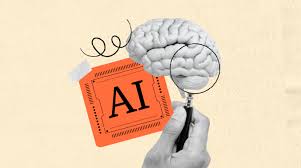The Silent Pandemic: Confronting the Global Mental Health Crisis

While physical health often dominates public discourse, a silent and escalating crisis in mental health is profoundly impacting individuals, communities, and national economies worldwide.
Despite increasing awareness, systemic issues, including pervasive stigma, chronic underfunding, fragmented care systems, and a severe shortage of qualified professionals, are leaving millions without the support they desperately need.
This global crisis has devastating human and economic costs and emphasizes the urgent need for a paradigm shift towards accessible, equitable, and integrated mental healthcare as a fundamental human right.
The Scale and Scope of a Global Crisis
The global mental health crisis is driven by a range of prevalent conditions, with anxiety and depressive disorders being the most common, affecting nearly a billion people worldwide according to the World Health Organization(WHO).
SOURCE: Google
Their rates differ significantly across demographics. Lower socioeconomic status, unemployment, financial strain, and low levels of education are all strongly associated with a higher risk of mental health conditions.
Globally, women and younger people are also at a statistically higher risk of developing anxiety and depressive disorders, while men have higher rates of substance use disorders.
These disparities reveal that mental health is not just a medical issue, but a social one, deeply intertwined with a person's life circumstances.
The lack of equitable distribution of resources means that low-income populations are often hit hardest, both by the conditions themselves and by the lack of available treatment options.
The Stigma Barrier and Cultural Context
A major and persistent barrier to seeking mental health support is stigma and a lack of understanding, which are deeply ingrained in many cultural contexts.
SOURCE: Google
In some cultures, mental illness is seen as a sign of personal or moral weakness, or as a source of shame for the family.
This leads individuals to suffer in silence, fearing judgment and social exclusion if they were to seek help.
This fear often prevents people from even acknowledging their symptoms, let alone seeking professional care.
A study by Healthdirect showed that many people with mental health challenges say dealing with stigma and discrimination is often harder than dealing with the illness itself, as it can lead to bullying, social exclusion, and a profound sense of isolation.
In diverse cultural settings, the language and conceptualization of mental health may also be different from Western clinical models, making it difficult for individuals to articulate their distress in ways that a healthcare system can recognize.
A lack of culturally sensitive care can further alienate individuals, reinforcing the idea that mental health support is not for them.
This systemic barrier means that a significant portion of the global population is not even entering the mental healthcare system in the first place, regardless of its availability.
The Heavy Economic Toll of a Neglected Crisis
The economic consequences of poor mental health are immense, yet often underestimated. The most significant costs are associated with lost productivity due to absenteeism, presenteeism, and unemployment.
The World Economic Forum and Harvard School of Public Health have estimated that the global cost of mental disorders could amount to trillions of dollars by 2030 in lost economic output.
This financial burdenfar outstrips the direct costs of treatment, which are chronically underfunded in most national health budgets.
In low- and middle-income countries, the impact is particularly devastating, as mental illness can trap individuals and families in a vicious cycle of poverty and poor health.
Without access to care, individuals lose the ability to work, leading to financial hardship. This economic stress, in turn, can exacerbate mental health conditions, making it even harder to escape poverty.
This cycle hinders both individual development and national economic growth, and the IMF has warned that this cycle is a major obstacle to sustainable development.
Global Events as Amplifiers of Distress
Recent global events have acted as powerful amplifiers of mental health challenges on a mass scale. The COVID-19 pandemic triggered a dramatic surge in anxiety and depression rates as people grappled with fear of illness, social isolation, and economic uncertainty.
SOURCE: Google
The psychological effects of lockdowns and bereavement continue to be felt by millions. Similarly, climate change is now recognized as a major mental health concern.
Exposure to extreme weather events like floods and wildfires can lead to post-traumatic stress disorder (PTSD), while the long-term anxieties about the future of the planet, known as "eco-anxiety," are affecting people of all ages.
Conflicts and economic hardships are also significant drivers of mental distress. Individuals displaced by war and violence often experience trauma, grief, and a profound sense of loss.
Economic downturns and periods of austerity lead to stress, anxiety, and depression as people worry about their jobs, housing, and ability to provide for their families.
These events highlight that mental health is a public health issue that requires a robust, systemic response, not just individual-level interventions.
Innovative Approaches and Policy Shifts
To confront this crisis, innovative approaches and policy changes are desperately needed, particularly in low-resource settings.
SOURCE: Google
A key strategy is task-shifting, where the roles of mental healthcare professionals are expanded to include non-specialists, such as community health workers or trained peers.
These individuals can provide basic mental health support, education, and referrals, helping to bridge the severe gap in the mental health workforce.
The WHO's mhGAP program, for example, provides tools to train non-specialist health workers to deliver evidence-based care for priority mental, neurological, and substance use disorders.
Policy reforms are also essential, with a focus on integrating mental health into primary care. Instead of treating mental health as a separate entity, it should be a standard component of routine healthcare.
This makes it easier for people to access support without the stigma of visiting a specialized clinic. Investing in prevention and early intervention programs, especially for children and adolescents, is also critical to stopping mental health issues from escalating into chronic conditions.
The Role of Technology and Community
Digital solutions, community-based interventions, and integrated care models are playing a crucial role in addressing the global mental health gap. Digital solutions, such as mobile apps and telehealth platforms, are making mental health support more accessible and affordable, especially for those in remote areas.
These tools can offer on-demand resources, connect patients with therapists via video calls, and provide self-help modules.
However, their ethical use requires strict data privacy measures and a focus on digital literacy to ensure they don't exacerbate existing inequities.
Community-based interventions are particularly effective in addressing the crisis at its root. Peer support groups, school-based programs, and partnerships with faith-based organizations can create a safe and trusted environment for people to share their experiences and receive support.
These local initiatives empower communities to take ownership of their well-being. Finally, integrated care models that combine mental and physical healthcare are essential.
For instance, a patient being treated for a chronic physical condition can also be screened for depression, and support can be provided seamlessly, recognizing the undeniable link between the body and mind.
These holistic, scalable solutions represent the most promising path forward in building a more equitable and effective mental healthcare system for all.
You may also like...
From Etisalat to 9mobile to T2: The Rise, Retreat, and Reinvention of Nigeria’s Fourth Operator

From a meteoric rise to a challenging retreat, Etisalat Nigeria’s evolution into T2 tells a story of resilience, wins, a...
Boxing Blockbuster: Jake Paul and Gervonta Davis Set for November Showdown

In a surprising announcement, Jake Paul is set to face WBA lightweight champion Gervonta "Tank" Davis in an exhibition b...
Carabao Cup Shocker: Grimsby Stuns Man Utd in Penalty Thriller

Manchester United suffered a shocking Carabao Cup exit after losing 12-11 on penalties to League Two side Grimsby Town. ...
Venice Stunner: Paolo Sorrentino's 'La Grazia' Captivates Critics with Record-Breaking Ovation!

Paolo Sorrentino's new film “La Grazia” opened the Venice Film Festival to critical acclaim, presenting a nuanced portra...
The Hunt for 007: Frontrunners Out, Legends Back, New Details Emerge in Bond Saga!

The search for the next James Bond intensifies as actors like Taron Egerton and Glen Powell rule themselves out, while M...
Reading and Leeds Festival Plunged Into Chaos by Secret Set Leaks and Star's Last-Minute Snub

Reading and Leeds Festival 2025 is buzzing with fan speculation about secret sets from The Foo Fighters and Chase & Stat...
Naira Marley Breaks Silence on Mohbad's Death Amid Mounting Controversy

Musician Naira Marley has publicly addressed the controversial death of his former signee, Mohbad, sharing his side of t...
Pete Davidson's Paternal Bliss: Comedian's Dream of Fatherhood Comes True with Elsie Hewitt

Comedian Pete Davidson and model Elsie Hewitt are expecting their first child, announced via Instagram by Hewitt. Davids...




